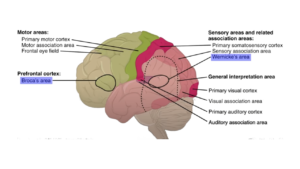Decisions are important in both our personal and professional lives. Good business leaders understand the importance of decision-making and continually seek to improvement how decisions are made throughout their organizations. According to Bain analysts, Michael C. Mankins and Lori Sherer, “The best way to understand any company’s operations is to view them as a series of decisions.”[1] They add, “We know from extensive research that decisions matter — a lot. Companies that make better decisions, make them faster and execute them more effectively than rivals nearly always turn in better financial performance. Not surprisingly, companies that employ advanced analytics to improve decision making and execution have the results to show for it.” The underlying truth about the importance of decisions is that they lead to action. Journalist Jeff Haden explains, “Contemplation and reflection are important, but nothing ever gets done until you actually get started. In business (and in life), a bias toward action is important.”[2]
The Nature of Decisions
We know that all decisions don’t carry the same weight (i.e., the same consequences). You can’t, for example, compare the decision to put fruit in your breakfast cereal with the decision to launch a new product into the market. Some people have difficulty making even the simplest of decisions because they want to gather all possible information before deciding. This is often called “analysis paralysis.” Writer Sarah Laoyan explains, “Analysis paralysis is a colloquial phrase used to describe the feeling of being unable to make a decision due to overthinking a problem. This often happens when you’re dealing with too many variables and continually researching solutions, instead of taking action and making a decision.”[3] Haden adds, “We all know people who overthink seemingly simple decisions. Who stack up the sandwich counter line while they decide between banana or cherry peppers. Who make the fulfillment department twiddle its collective thumbs while they decide whether to expedite the shipping on a late order. Who, as Jeff Bezos would say, assume most two-way door decisions (easily reversible) are one-way door decisions (almost impossible to reverse), and wind up making few decisions at all.”[4]
Haden notes that Bezos believes people can overcome analysis paralysis by embracing the fact that most, but not all, decisions are reversible and don’t require perfect information. He quotes Bezos who has remarked, “Many decisions are reversible, two-way doors. Those decisions can use a light-weight process. Most decisions should probably be made with somewhere around 70 percent of the information you wish you had. Some decisions are consequential and irreversible or nearly irreversible — one-way doors — and these decisions must be made methodically, carefully, slowly, with great deliberation and consultation. If you walk through and don’t like what you see on the other side, you can’t get back to where you were before. But most decisions aren’t like that — they are changeable, reversible — they’re two-way doors. If you’ve made a suboptimal two-way door decision, you don’t have to live with the consequences for that long. You can reopen the door and go back through.”
There are also decisions that are cut-and-dry. These are routine decisions that have been made hundreds, if not thousands of times, and follow a known pattern or set of rules. Leaders shouldn’t bother themselves with these decisions. Routine decisions should be made by others, or better yet, by computers so that no one has to waste their time making them. That’s one reason Enterra Solutions® is focusing on advancing Autonomous Decision Science™ (ADS®) — to relieve humans from information overload. As discussed below, ADS can also help decision-makers take action when the decisions aren’t so routine.
Overcoming Analysis Paralysis
Jim VandeHei, co-founder and CEO of Axios, notes, “One of my favorite maxims from one of my favorite business books is: ‘If you are going to eat shit, don’t nibble.’ Ben Horowitz, writing in The Hard Thing about Hard Things, coined this wonderful, if crude, concept for taming the human instinct to avoid tough actions. He was spot on. Think of all the time wasted avoiding tough conversations, or difficult decisions, or unpleasant moments. We dither, ignore, nibble around the edges.”[5] There is a reason the old adage “time is money” has demonstrated generational staying power. The question is: How do make better, quicker decisions? Or as Haden asks, “How do you still perform at a high level when speed is not just preferable, but required?”
According to Laoyan, the first thing you do is set yourself a deadline to make a decision. She writes, “If you have no timeline for when a decision needs to be made, you can spend a large amount of time waffling back and forth between different options, and ultimately never making a decision.” Her second recommendation is to narrow down your options early. She explains, “If you have an overwhelming amount of options, get rid of some right away. Figure out what you want your expected outcome of this decision to be, and then eliminate any options that don’t fit the qualifications of that outcome.” For a business leader, the number of options available can indeed be overwhelming. One way to quickly reduce the number of options is to let artificial intelligence (AI) help. The Enterra Global Insights and Decision Superiority System™ (EGIDS™) can run hundreds of scenarios at computer speed so that decision-makers can quickly select the options that look most promising.
For decisions that don’t require augmented intelligence, Laoyan suggests practicing making decisions quickly. She explains, “Impulsivity isn’t always a bad thing. If you are constantly plagued by analysis paralysis, practice making small decisions fast. The inconsequential things like deciding where to eat dinner or what path you take to get to work will help you be more decisive when you’re making bigger decisions.” Haden suggests “intuitive” is a better choice of words than “impulsive.” He writes: “According to Nobel Prize-winning economist Daniel Kahneman, ‘intuition is thinking that you know without knowing why you do. Like quickly scanning three resumes and, without thinking too hard, picking the best candidate. Like quickly scanning long checkout lines at the supermarket and deciding, without thinking too hard, which is likely to be the quickest.’ … As Friederike Fabritius and Hans Hagemann write in The Leading Brain: Neuroscience Hacks to Work Smarter, Better, and Happier: ‘Although there’s a common misconception that intuitive decisions are random and signify a lack of skill, the exact opposite is true. Intuitive decisions are often the product of years of experience and thousands of hours of practice. They represent the most efficient use of your accumulated experience.'”
Laoyan’s final suggestion for overcoming analysis paralysis is to use a framework for your decision-making process. She explains, “Believe it or not, there is a whole framework for the decision-making process. Following a step-by-step guide can help take away some of the cognitive heavy work that’s required to make a big decision.” The Enterra Global Insights and Decision Superiority System mentioned earlier can help in this respect. Driven by Enterra’s artificial intelligence engine — the Enterra Autonomous Decision Science™ platform — it can help business leaders rapidly explore a multitude of options and scenarios with the embedded expertise of an organization’s best data scientist or subject matter expert.
Good leaders know that the better and faster they can make decisions the more likely they are to succeed in today’s rapidly changing business environment. Artificial (or augmented) intelligence can help with information overload and analysis paralysis.
Footnotes
[1] Michael C. Mankins and Lori Sherer, “Creating value through advanced analytics,” Bain Brief, 11 February 2015.
[2] Jeff Haden, “How to Make Better Decisions, Faster,” Inc., 9 June 2023.
[3] Sarah Laoyan, “4 tips for overcoming analysis paralysis,” Asana, 4 August 2022.
[4] Jeff Haden, “How to Embrace the Rule of Reversible Outcomes to Stop Overthinking and Make Smarter Decisions,” Inc., 5 November 2021.
[5] Jim VandeHei, “Stop ducking the tough decisions,” Axios, 16 Jun 2022.





